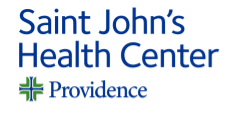
According to the Centers for Disease Control, three in four adults in the U.S. have a sleep disorder. Among the most common is Obstructive Sleep Apnea (OSA), where the upper airway becomes blocked during sleep, leading to breathing interference. Recognizable symptoms of OSA include loud snoring, gasping/choking for air during sleep, excessive daytime sleepiness, and headaches, among others.
Untreated, OSA can have severe health consequences such as Type 2 diabetes, high blood pressure, heart failure, stroke, and more. Traditionally, OSA is diagnosed through a sleep study and treated with continuous positive airway pressure (CPAP) machines, which use pressurized air to keep airways open during sleep. However, CPAP machines may not suit everyone’s lifestyle.
For those with moderate to severe OSA, it’s important to make sure that oxygen gets to your brain while you sleep. If you are unable to tolerate CPAP for one reason or another, there’s an implantable alternative that provides relief from OSA. The device, called Inspire, works by delivering gentle pulses to airway muscles, keeping them open for regular breathing and sound sleep.
Patient outcomes with this device implant have been promising. 90% of bed partners report no snoring or soft snoring, and there is a 79% reduction in sleep apnea events. Remarkably, 94% of patients report that they prefer the implant over CPAP and would recommend it to others.
If you or a loved one is struggling with OSA, it’s worth exploring this second-line therapy for better sleep and improved overall health.
Adapted from original article in the Santa Monica Star June 2024.
Omid B. Mehdizadeh, MD, is an otolaryngology-head & neck (ENT) surgeon with particular expertise in voice, swallowing and throat conditions at Pacific Neuroscience Institute (PNI). A Los Angeles native, his career has spanned treating world-class opera and Broadway singers to surgical mission trips serving underprivileged and indigenous populations of Central America. Outside PNI, he has focused his time on educating medical and undergraduate students and providing medical care to disenfranchised populations through community clinics. PacificHeadAndNeck.com / 310-477-5558








